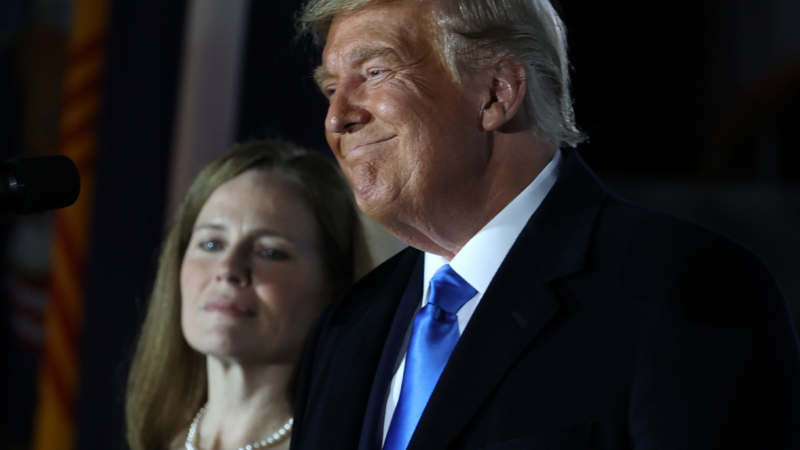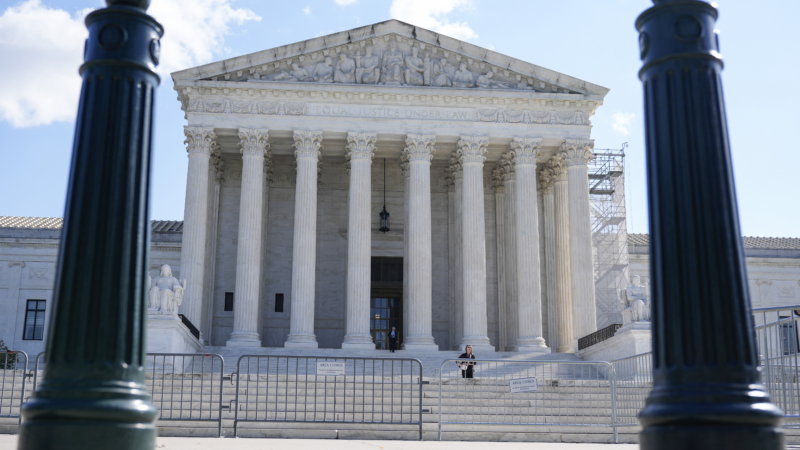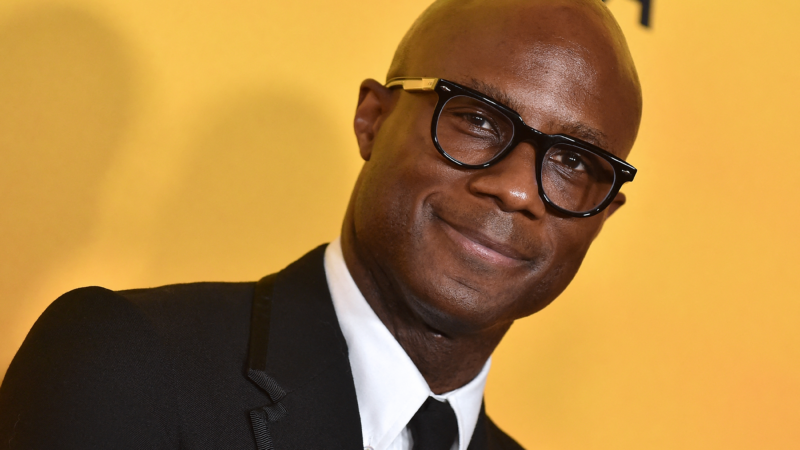President-elect set to shape ‘Trump judiciary’ for next generation
During Donald Trump’s first term in office, appointing federal judges became one of his biggest accomplishments.
Legal experts predict Trump will move quickly next year to cement and extend that legacy—and they said he will enjoy some substantial advantages this time around: being able to see how his initial picks performed.
“The president will have a ready pool of nominees who he already knows, and is comfortable with,” said Jesse Panuccio, a former top official in the Trump Justice Department who now works in private legal practice.
Panuccio pointed out Trump is the first president since 1893 to have served nonconsecutive terms in office. He said perhaps not since Grover Cleveland served in the Oval Office, “… the president is going to have the opportunity to see how these appointments, these appointees, have performed on the bench for several years now.”
Appointees of a president don’t always act according to his wishes once they’re in a life-tenured post. Now, Trump is likely to be more discerning in trying to gauge whether a nominee is likely to abide by his priorities many years down the line, by examining their records on the bench and their writings.
Republicans are in line to control the Senate with 53 votes, giving the Trump White House plenty of running room to confirm nominees.
Russell Wheeler, a fellow at the Brookings Institution think tank, said if senators go about confirming judges with the same “ferocity” they exhibited during the first Trump administration, Trump will have a good chance to change the makeup of the federal courts “quite dramatically.”
In his first four years in the White House, the Senate confirmed 234 Trump-nominated judges, including Supreme Court Justices Neil Gorsuch, Brett Kavanaugh, and Amy Coney Barrett.
Because these federal judges serve for life, and because Trump has tended to choose younger people for these jobs, “we could be looking at a Trump judiciary for the next generation or so,” Wheeler said.
Spotlight on loyalty
In the Biden years, the White House made a major push for diverse judge nominees. Nearly two in three of the Biden judges have been women. Many of them are people of color.
“The number of white males Biden appointed to the bench you could almost count on your hands and your fingers and toes,” Wheeler said.
Trump, on the other hand, may select judges based on personal loyalty, if his other choices for key Cabinet picks are a guide.
But a key question for next year is whether Trump’s interest in loyalty could alienate some Republicans in the Senate.
Edward Whelan works at the Ethics and Public Policy Center, a conservative think tank. He writes frequently about the federal judiciary.
“Back in 2005, when President George W. Bush nominated Harriet Miers to fill Sandra Day O’Connor’s seat, the conservative legal movement erupted in opposition to that pick,” Whelan recalled.
Miers, a friend of the president who had worked as a law clerk but had no prior experience as a judge, eventually withdrew her nomination to the Supreme Court.
“The takeaway from that is that the president proceeds at great risk if he nominates someone who’s simply a loyalist or someone who is seen as not qualified,” Whelan said.
Skye Perryman leads Democracy Forward, a left-leaning group that advocates for progressive causes and judges. Perryman said she expects Trump to advance nominees with what she calls “extreme” positions on issues such as limits to reproductive rights. But, she said, there is a possible check on that process.
“There is an opportunity to highlight and hold senators accountable, including Republican senators, should they confirm judges that are out of step with what the vast majority of Americans hope and believe,” Perryman said.
Senators will have to decide if loyalty to Trump is worth the risk of voter backlash in the next midterm elections in 2026.
Transcript:
JUANA SUMMERS, HOST:
During President-elect Donald Trump’s first term in office, appointing federal judges became one of his biggest accomplishments. Legal experts predict Trump will move quickly next year to cement and extend that legacy. NPR justice correspondent Carrie Johnson reports.
CARRIE JOHNSON, BYLINE: Donald Trump installed more than 220 federal judges during his stint in the White House with a lot of help from a Republican-led Senate. Now, as Trump prepares to return to office, he enjoys some substantial advantages this time around.
JESSE PANUCCIO: The President will have a ready pool of potential nominees who he already knows and is comfortable with.
JOHNSON: That’s Jesse Panuccio. He’s a former top official in the Trump Justice Department. Panuccio points out Trump is the first president since 1893 to have served nonconsecutive terms in office.
PANUCCIO: And interestingly, and perhaps different from anything we’ve ever seen since Grover Cleveland, the president is going to have the opportunity to have seen how these appointments – these appointees – have performed on the bench for several years now.
JOHNSON: Next year Republicans will again control the Senate with 53 votes, giving the Trump White House plenty of running room to confirm judge nominees. Russell Wheeler is a fellow at the Brookings Institution.
RUSSELL WHEELER: And if the Senate goes about confirming judges with the same ferocity that it did during the first Trump administration, I would say he would have a pretty good chance to change the composition of the Federal Court – certainty the Courts of Appeals – quite dramatically.
JOHNSON: Because these judges serve for life and because Trump has tended to choose younger people for these jobs, Wheeler says…
WHEELER: We could be looking at Trump judiciary for the next generation or so.
JOHNSON: In the Biden years, the White House made a major push for diverse judge nominees. Nearly two in three of the Biden judges are women and many of them are people of color. Again, Russell Wheeler.
WHEELER: The number of white males Biden appointed to the bench, you could almost count on your hands and your fingers and toes.
JOHNSON: Legal experts say they think Trump will select judges based on other factors.
WHEELER: Just a guess here that personal loyalty will be a standard that Trump will elevate in the second term. I don’t think he wants to appoint anybody who might not decide cases the way he wants them, especially when they involve him.
JOHNSON: A key question for next year is whether Trump’s interest in loyalty could alienate some Republicans in the Senate. Edward Whelan works at the Ethics and Public Policy Center, a conservative think tank.
EDWARD WHELAN: Back in 2005, when President George W. Bush nominated Harriet Miers to fill Sandra Day O’Connor’s seat, the conservative legal movement erupted in opposition to that pick.
JOHNSON: Miers, a friend of the president, eventually withdrew her nomination. Whelan says federal judges must meet a higher bar than some other appointees.
WHELAN: The takeaway from that is that a Republican president proceeds at great risk if he nominates someone who is simply a loyalist or someone who is seen as not qualified.
JOHNSON: Skye Perryman leads Democracy Forward, a left-leaning group that advocates for progressive causes and judges. Perryman says she expects Trump to advance what she calls extreme nominees. But she says there is a possible check on that process.
SKYE PERRYMAN: There is opportunity to highlight and hold senators accountable, including Republican senators, should they confirm judges that are out of step with what the vast majority of Americans hope and believe.
JOHNSON: Senators will have to decide if loyalty to Trump, winner of the U.S. popular vote for the first time, is worth the risk of voter backlash. Carrie Johnson, NPR News, Washington.
Millions face wintry weather for what could be a record-setting holiday travel season
More than 119 million people are expected to travel for Christmas and Hanukkah, which both fall on the same day this year, through the New Year, according to AAA.
Review by Senate Democrats finds more unreported luxury trips by Clarence Thomas
A report by Democrats on the Judiciary Committee found additional travel taken in 2021 by Thomas but not reported on his annual financial disclosure, including trips on private jets and a yacht trip.
Where did Barry Jenkins feel safe as a kid? Atop a tree
Director Barry Jenkins is best known for films like "Moonlight" and "If Beale Street Could Talk." On Wild Card, he opens up about where he felt the safest as a kid.
Israeli strikes across Gaza kill at least 20, including five children
Israeli strikes across the Gaza Strip overnight and into Sunday killed at least 20 people, including five children, Palestinian medical officials said.
I discovered one way to fight loneliness: The Germans call it a Stammtisch
Modern life can be lonely. Some are looking to an old German tradition – of drinking and conversation – to deepen connection through regular meetups.
This Christmas I’ll be grieving. Here’s how I’ll be finding joy.
Since her husband's death, newscaster Windsor Johnston has been looking for ways to recapture joy and continue her healing journey — one that's taken her to a place she'd never expected.






